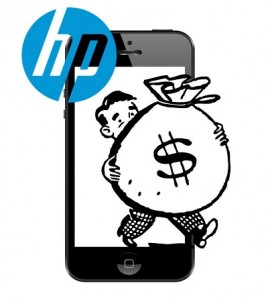Malicious mobile apps are becoming an increasingly problematic expense for advertisers.
Forensiq, a fraud detection firm, has now announced the results of its recent research, which indicated that mobile security issues produced by malicious apps are generating an additional cost to advertisers that is close to $1 billion every year.
In-app advertising has become a tremendous business, worth an estimated $20 billion in the United States.
This rate is continuing to grow along with the popularity of smartphones. However, of that amount that is being spent on mobile marketing, it is being estimated that about a twentieth of it is actually being wasted. Mobile security issues in the form of fraudulent and malicious apps that can hijack smartphones and convert them into ad-viewing botnets could be costing as much as $1 billion of that $20 billion in advertising money.
There are now many different known forms of these mobile security issues that plague device users and advertisers.
 While there are a broad spectrum of different types of mobile fraud, which includes gadget emulation, location spoofing, and mobile user-agent spoofing, in addition to user acquisition scams, Forensiq says that it doesn’t stop there. It claims to have identified a new type of fraud, which it calls “mobile device hijacking.”
While there are a broad spectrum of different types of mobile fraud, which includes gadget emulation, location spoofing, and mobile user-agent spoofing, in addition to user acquisition scams, Forensiq says that it doesn’t stop there. It claims to have identified a new type of fraud, which it calls “mobile device hijacking.”
What that involves is the use of a malicious app that pretends to act as a human on a device by loading new pages or using various different application functions, each of which cause the device to load advertising. That said, while this may somewhat replicate human behavior, it also loads a much larger number of ads than would be the case with normal usage – up to 20 ads each minute. Often, this occurs in the background while the application in question isn’t being used, so that the owner of the device won’t even see that it is happening.
This mobile security problem is leading to an estimated $1 billion in lost dollars for marketers, but it also causes the device to eat through a user’s battery life and bandwidth. This means that it’s not just advertisers who are paying for this fraud, but the device owners, themselves, will also often face increased costs.
Carta Worldwide to provide HP with efficient and secure mobile payments technology
Hewlett-Packard (HP) has chosen Carta Worldwide, a developer of transaction technology, to deliver new mobile payments services to its customers. These services will be delivered to those in Europe, Africa, the Middle East, Asia, and Canada. Carta’s cloud-based payments and tokenization technology will be used to help HP meet the growing demands for mobile payments support that are coming from consumers. This technology may also introduce more security to the payments sector.
Tokenization may help make mobile transactions significantly more secure
HP suggests that Carta is one of the only companies that is capable of offering everything its customers need for convenient and secure mobile payments. The company’s tokenization technology, in particular, is considered quite robust, and may provide consumers with a greater sense of security when it comes to making a transaction with their mobile devices. Tokenization involves using digital tokens in place of financial data, and these tokens can be used to authenticate a transaction.
Mobile payments continue to gain prominence among consumers and businesses alike
 Mobile payments are becoming more popular among consumers, but many people still have concerns about the security of making a transaction with a smartphone or tablet. These security concerns have slowed the adoption of mobile payments among consumers as well as retailers. Companies like Carta and HP have been looking for ways to lay these security concerns to rest and cloud-based payment systems combined with tokenization may be an adequate solution to this problem.
Mobile payments are becoming more popular among consumers, but many people still have concerns about the security of making a transaction with a smartphone or tablet. These security concerns have slowed the adoption of mobile payments among consumers as well as retailers. Companies like Carta and HP have been looking for ways to lay these security concerns to rest and cloud-based payment systems combined with tokenization may be an adequate solution to this problem.
Carta intends to provide HP with future-proof technology that will allow it to compete more aggressively in the mobile commerce space
Carta’s services allow its customers to quickly deploy a wide range of mobile payments solutions. The company believes that its technology will provide HP with a “future-proof” roadmap for its plans in the mobile payments space. HP will, of course, face competition from other companies that have their own interests in mobile commerce, but providing consumers with a safe way to purchase products with a smartphone may win the company some significant favor.
 While there are a broad spectrum of different types of mobile fraud, which includes gadget emulation, location spoofing, and mobile user-agent spoofing, in addition to user acquisition scams, Forensiq says that it doesn’t stop there. It claims to have identified a new type of fraud, which it calls “mobile device hijacking.”
While there are a broad spectrum of different types of mobile fraud, which includes gadget emulation, location spoofing, and mobile user-agent spoofing, in addition to user acquisition scams, Forensiq says that it doesn’t stop there. It claims to have identified a new type of fraud, which it calls “mobile device hijacking.”
 Mobile payments are becoming more popular among consumers, but many people still have concerns about the security of making a transaction with a smartphone or tablet. These
Mobile payments are becoming more popular among consumers, but many people still have concerns about the security of making a transaction with a smartphone or tablet. These 